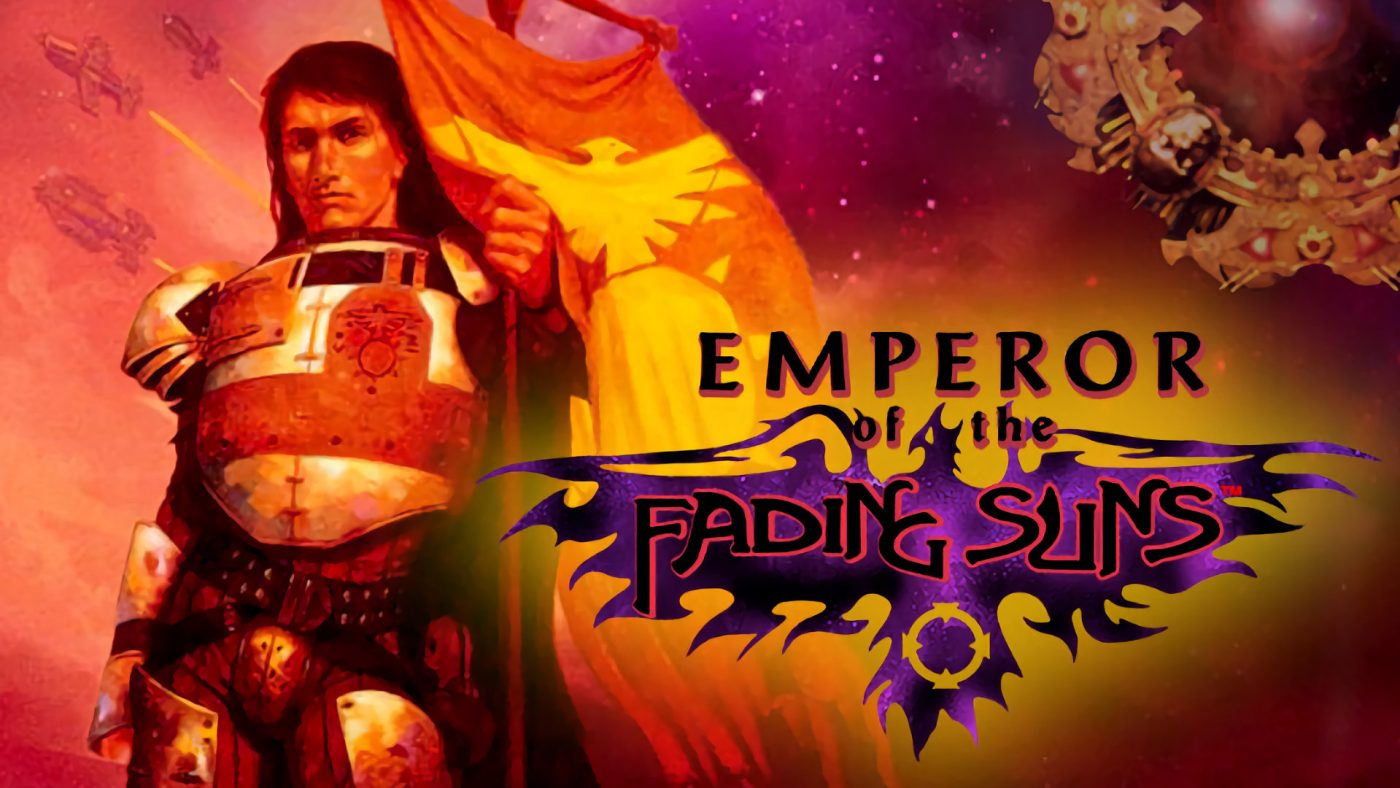Emperor of the Fading Suns emerged in 1997 as a flawed gem that sought to blend grand strategy with rich lore. Developed by Holistic Design, this game transported players to a distant future where humanity is fractured and at war for dominance over the Known Worlds. Drawing heavily from the Dune and Warhammer 40k universes, Emperor of the Fading Suns established itself as a complex and ambitious title, remembered fondly by those who could navigate its intricacies.
Intricate Gameplay and Strategy
At its core, Emperor of the Fading Suns is a 4X strategy game set in a sprawling galactic empire on the brink of collapse. Players assume control of one of five noble houses, each vying for the imperial throne. The game demands military prowess, political acumen and economic management. The gameplay is multi-faceted, involving planetary conquest, space combat, resource management, and intricate diplomacy.
Each house starts with a few planets under their control, and players must manage these worlds carefully, balancing the needs of the population, the demands of the church, and the ever-present threat of rebellion. Planetary environments vary widely, affecting resource production and the types of units that can be deployed. This diversity necessitates a nuanced approach to empire-building, as strategies must be tailored to the specific characteristics of each world.
Rich Lore and Storytelling
The lore of Emperor of the Fading Suns is deep and immersive, drawing players into a richly textured universe. Humanity is united under the Holy Flame and ruled by a crumbling empire after the fall of a powerful ruling house. The game’s narrative backdrop is filled with intrigue, religious fervour, and the remnants of ancient technologies. The five noble houses—Hawkwood, Decados, al-Malik, Li Halan, and Hazat—each have distinct histories, motivations, and aesthetics, contributing to the game’s layered storytelling.
The Church of the Celestial Sun plays a pivotal role, acting as both a stabilizing force and a potential antagonist, depending on the player’s choices. This religious aspect adds a unique dimension to the gameplay, influencing everything from diplomacy to unit production. Moreover, the presence of ancient, alien technologies and mysterious artifacts scattered across the galaxy provides an enticing lure for exploration and conquest.
The Houses and Their Unique Characteristics
Each of the five houses offers a distinct playstyle, enriching the strategic diversity of the game. House Hawkwood, known for its honourable knights and strong military tradition, provides a balanced approach suitable for both new and experienced players. House Decados, with its penchant for espionage and subterfuge, caters to those who prefer a more clandestine approach to power. House al-Malik’s focus on trade and diplomacy allows for a more economic-driven gameplay style. House Li Halan, deeply religious and pious, intertwines its actions with the church’s influence, providing a unique blend of faith and power. Lastly, House Hazat, fierce and aggressive, is ideal for players who favour direct and relentless military expansion.
The game features a wide array of units, from basic infantry and tanks to powerful dreadnoughts and mysterious psychic units. Each house has access to unique units that reflect their thematic strengths and weaknesses, adding another layer of strategic depth. The variety in unit types and the ability to research and upgrade technologies keep the military aspect of the game fresh and engaging.
Flaws and Release Issues
Despite its many strengths, Emperor of the Fading Suns was not without flaws. Upon its release, the game was plagued by numerous bugs and performance issues that hindered the player experience. Pathfinding problems, AI inconsistencies, and crashes were common complaints. The ambitious scope of the game also meant that some mechanics were not as polished as they could have been, leading to a steep learning curve and occasional frustration.
However, the dedicated fan base and modding community worked tirelessly to address these issues, creating patches and mods that enhanced gameplay stability and added new content. Their efforts ensured that Emperor of the Fading Suns continued to thrive long after its initial release, securing its place as a cult classic in the annals of strategy gaming.
Legacy and Impact
Emperor of the Fading Suns remains a testament to the ambition and creativity of 1990s PC game development. Its rich lore, complex gameplay, and strategic depth have left an indelible mark on the genre, inspiring future titles and captivating a dedicated following. While its flaws at release may have marred its initial reception, the enduring appeal of its intricate universe and the dedication of its community have cemented its status as a beloved and influential classic.


